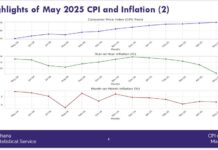By Samuel Lartey(Prof)
In recent years, vote-buying has become a growing concern in the Ghanaian political landscape. This practice, where political candidates or parties offer monetary or material incentives to voters in exchange for their votes, has permeated Ghana’s electoral process, raising alarm over its impact on the country’s democratic governance.
Although vote-buying is not unique to Ghana, its prevalence in recent elections, including presidential, parliamentary, and local government contests, has sparked debate among scholars, civil society organizations, and political commentators. This article explores the rising menace of vote-buying in Ghana, its economic, social, and political governance implications, and its impact on the governing tenor of political parties.
Historical Context of Vote-Buying in Ghana
Historically, Ghana has been viewed as a beacon of democracy in West Africa, with relatively peaceful transitions of power and well-organized electoral processes. Since the advent of the Fourth Republic in 1992, Ghana has experienced six successful elections, with power alternating between the two dominant political parties, the National Democratic Congress (NDC) and the New Patriotic Party (NPP).
However, as electoral competition has intensified, vote-buying has increasingly become a tool for political manipulation. The practice, once subtle, has evolved into a systematic and open form of electoral corruption, compromising the integrity of Ghana’s democratic process.
Vote-buying in Ghana dates back to the early days of multi-party politics, but its scale and brazenness have grown exponentially. Initially, political candidates engaged in token gestures such as offering food, drinks, or T-shirts to voters.
Over time, this practice has escalated, with direct monetary payments, household goods, and even promises of employment being used to influence voters’ decisions. This erosion of electoral integrity has severe implications for Ghana’s democratic governance.
Economic Implications of Vote-Buying
One of the most direct consequences of vote-buying is its distortion of economic priorities in the governance process. Political parties, in their bid to secure votes, divert large amounts of resources toward electoral patronage rather than channeling funds into sustainable developmental projects.
Campaigns become more about raising funds for short-term electoral gains, rather than focusing on long-term economic policies that would improve the livelihoods of citizens. This encourages politicians to prioritize immediate rewards over sound governance, fostering a culture of clientelism where elected leaders feel obligated to serve the interests of their financial backers rather than the general public.
Furthermore, the use of public funds to finance vote-buying activities often leads to fiscal indiscipline. Resources that should be used for public services such as healthcare, education, and infrastructure development are instead funneled into vote-buying schemes. In some cases, political actors engage in questionable economic deals to raise the funds required for vote-buying, further deepening the country’s economic woes. This fosters corruption at various levels of governance and contributes to the country’s mounting public debt, which adversely affects Ghana’s economic stability.
Social Implications of Vote-Buying
Vote-buying has far-reaching social implications, particularly in how it distorts the relationship between citizens and the state. It creates a transactional mindset where citizens expect to be financially compensated for their votes rather than voting based on policies and governance track records.
This weakens the accountability mechanism inherent in democratic governance. When citizens accept money in exchange for their votes, they essentially relinquish their right to hold elected leaders accountable, thereby eroding civic responsibility and reducing the electorate’s commitment to democratic values.
Additionally, vote-buying exacerbates inequality in society, as political actors target vulnerable and impoverished communities where economic desperation makes people more susceptible to financial incentives.
This practice perpetuates a cycle of poverty, as these communities become dependent on handouts from politicians rather than demanding policies that will address their long-term socio-economic challenges. It also contributes to social division, as different groups within the electorate receive different benefits, leading to a perception of favoritism and further fragmentation of Ghanaian society.
The normalization of vote-buying also affects the youth. As young people witness political actors engaging in this practice with little to no repercussions, they begin to view politics as a game of personal gain rather than public service. This undermines the civic education needed to nurture future generations of leaders committed to democratic ideals.
Political Governance Implications
Vote-buying has severe consequences for political governance in Ghana. It undermines the credibility of elections, as results may not reflect the genuine will of the people but rather the financial might of the highest bidder. This weakens democratic institutions, as political power is bought rather than earned through legitimate political engagement and policy debate. The practice discourages competent individuals who may lack financial resources from participating in politics, thereby reducing the pool of qualified candidates running for office.
Moreover, vote-buying entrenches corruption in the political system. Once elected through corrupt means, politicians often feel the need to recoup their financial investment, leading them to engage in corrupt practices during their tenure in office. This results in poor governance, as public resources are siphoned off for personal gain rather than being used to serve the public good. Vote-buying also undermines meritocracy, as political appointments and favors are often granted to those who contributed to the vote-buying process rather than those who are most qualified for the job.
Furthermore, vote-buying contributes to political apathy among the electorate. When citizens perceive that elections are determined by financial incentives rather than ideas and policies, they become disillusioned with the political process. This weakens democratic participation, as fewer people are motivated to engage in meaningful political discourse or even turn out to vote. Over time, this can erode the legitimacy of the political system itself, as citizens lose faith in the electoral process and the governance structures that result from it.
Impact on the Governing Tenor of Political Parties
The reliance on vote-buying significantly affects the governing tenor of political parties. Parties that engage in vote-buying are often less focused on developing comprehensive policy platforms and more concerned with winning elections at all costs. This shifts political discourse away from substantive policy debates toward strategies of electoral manipulation. The result is a governance approach driven by short-term electoral gains rather than long-term national development goals.
Political parties that rely on vote-buying also tend to centralize power around a few key financial backers, reducing internal party democracy. These financial backers, having invested heavily in the election process, expect to be rewarded with government contracts, appointments, or other forms of patronage once the party is in power. This creates a system where political decisions are influenced by a small group of elites rather than the broader electorate, leading to policies that serve narrow interests rather than the public good.
Moreover, vote-buying undermines political parties’ ability to mobilize grassroots support based on ideology and policy. Instead of building a base of loyal supporters who believe in the party’s vision for the country, parties focus on short-term transactional relationships with voters. This weakens party structures and hinders their ability to effectively govern once in office.
Conclusion
Vote-buying is a growing concern in Ghana’s political electoral process, with profound implications for economic, social, and political governance. It distorts economic priorities, weakens democratic accountability, and entrenches corruption in political governance. The practice also undermines the governing tenor of political parties, shifting their focus from policy development to electoral manipulation.
To address this growing concern, there is a need for greater civic education to empower voters to resist financial incentives and vote based on policies and governance track records. Civil society organizations, the media, and electoral authorities must also intensify efforts to monitor and expose vote-buying activities.
Ultimately, the future of Ghana’s democracy depends on the ability of all stakeholders including political parties, voters, and institutions to resist the corrosive effects of vote-buying and restore the integrity of the electoral process. Only then can Ghana’s political system truly serve the interests of its people and promote sustainable development.
EMAIL: [email protected]










